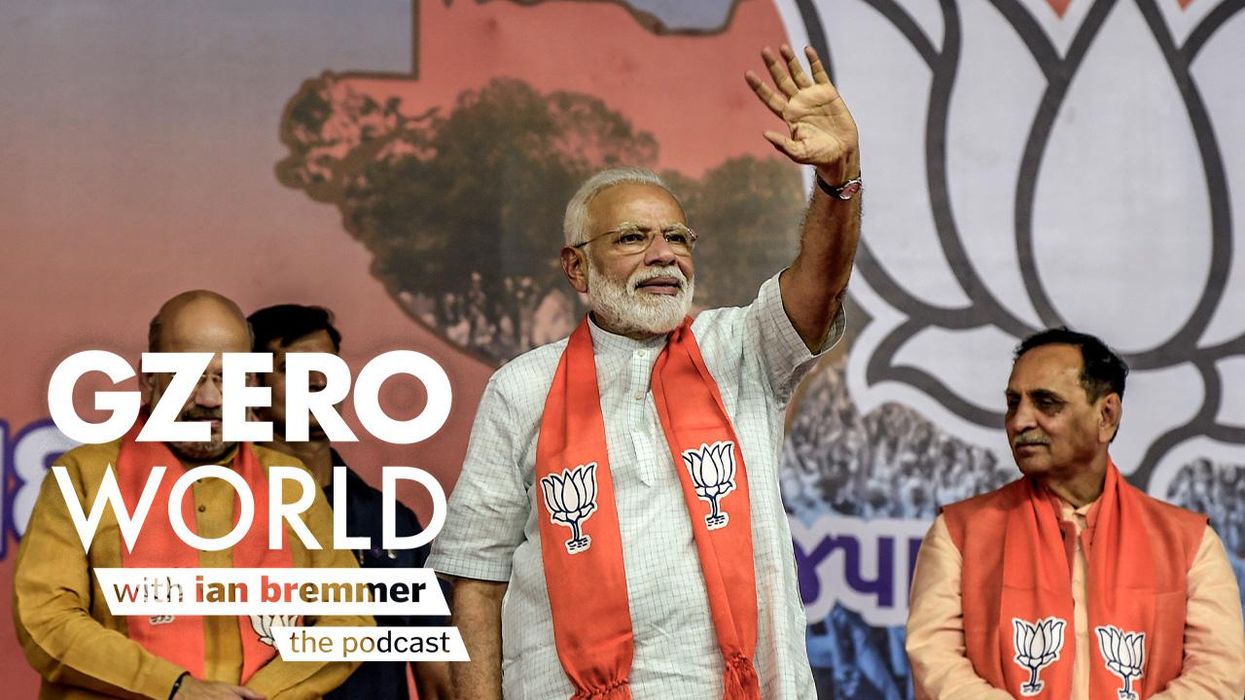
Podcast: How discontent with globalization has fueled authoritarian "strongmen"
Listen: After two years of unrelenting pandemic, continued rise in global temperatures, and a war in Ukraine that is not ending, has globalization benefited the world? On the GZERO World Podcast, Ian Bremmer speaks to Gideon Rachman, chief foreign affairs columnist for the Financial Times, who knows a thing or two about the likes of Vladimir Putin, Xi Jinping, or Donald Trump, and has just written a book about strongmen.
Listen: As inflation, including as seen in rising food and commodity prices, destabilize global systems, strong leadership will appeal to more people. Part of the pushback against globalization has been led by autocrats who reject ideas like free trade and the liberal international order. Globalization is seen to equate losing control. But the world today remains more interconnected than ever. So, do those expressing discontent want less globalization, or rather a version that fits their narrative? And, after two years of unrelenting pandemic, continued rise in global temperatures, and a war in Ukraine that is not ending, has globalization benefited the world?
On the GZERO World Podcast, Ian Bremmer speaks to Gideon Rachman, chief foreign affairs columnist for the Financial Times, who knows a thing or two about the likes of Vladimir Putin, Xi Jinping, or Donald Trump, and has just written a book about strongmen. Rachman explains why resentment at minorities motivates both autocrats and their supporters, why strongmen use emotions to justify their nationalism and protectionism, and why Narendra Modi is the least bad of them right now.
Subscribe to the GZERO World Podcast on Apple Podcasts, Spotify, Stitcher, or your preferred podcast platform, to receive new episodes as soon as they're published.






